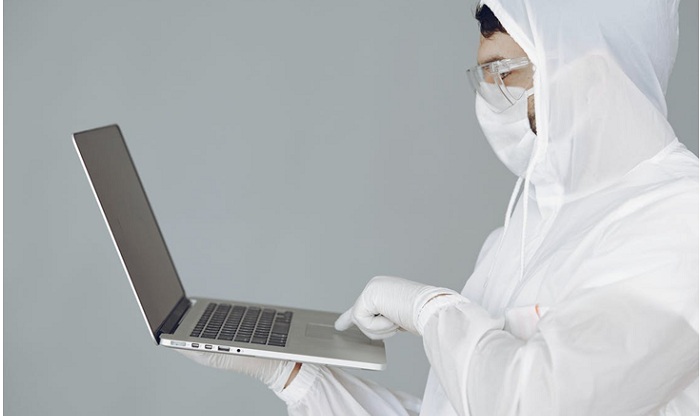Virtual healthcare assistants have become increasingly popular in the medical and healthcare industry where they are being deployed by major institutions to facilitate patients and as well as doctors and other healthcare staff. They are ideally defined as rule-based systems that can be further induced with AI and machine learning technology to augment their performance and capabilities.
They are commonly used to carry out basic tasks that don’t require human intervention; however, with the progress in technology, they might be utilized to carry out much more complex tasks in the future.
According to a recent report by Meticulous Research, the virtual assistant market is expected to grow at a CAGR of 24.7% from 2018 to 2025. The global market will reach $1.7 billion by 2025, fueled by the increasing adoption of IoT, smartphone devices, and internet connectivity.
The focus on patient engagement and reduction in healthcare costs along with the shortage of healthcare professionals and an increase in diseases caused by lifestyle choices are also supporting factors behind this movement.
In light of this information, let us take a quick look at some of the ways through which Virtual Healthcare Assistants can help people staying at home and offer effective solutions while catering to their medical needs.
1. 24/7 Patient Monitoring
With patients being offered help through comprehensive software that is programmed to deal with their concerns and issues pertaining to healthcare means that human redundancies can be removed. This translates to the fact that through VHAs, medical institutions and healthcare establishments can offer patient support throughout the day without the need for human intervention.
Even the most dedicated and committed professionals require sleep and time off to perform at their best capacities. This is not the case with VHAs as they can pretty much offer 24/7 monitoring of patient wellbeing without getting tired or exhausted.
They can answer their queries and even conduct basic checkups by simply piloting a question-answer session online or through a scripted voice call. The VHA will then record their answers and present a report to the medical officer or professional whenever they rejoined their shift the other day.
2. Accessing Learning & Education
A lot of the time, patients are often confused about what to do and where to ask for help. VHAs can be programmed to provide them with substantial learning and education regarding precautionary measures that one should take under special conditions.
In fact, encyclopedic knowledge about medical symptoms and conditions can be uploaded into their databases to provide patients with up to date information regarding general queries and to improve their know-how.
As such, a VHA can in itself be transformed into an institution where users online can readily interact to improve their healthcare understanding and thus become more aware of their wellbeing.
3. Choosing the Best Insurance Plans
Another example where VHAs can help patients without ever having the need to leave their homes is concerning the selection of insurance plans. Any kind of insurance can be tricky as the user agreement may entail additional fees or hidden charges that one needs to be wary of before making their decision.
A VHA could offer them complete details about several medical insurance plans that a user may like to acquire or apply for in the near future. It can also assist in generating a comparative analysis for patients so that they can look into the various different features of several insurance plans and compare their pros and cons according to their preferences.
Furthermore, with the proper data, a VHA can even be programmed to suggest and generate insurance plans based on user information. They can also suggest the plans that best suit customer needs and requirements.
4. Follow Through with Patient’s Routine
One of the most common types of medical checkups includes cross-questioning of patients to ensure that they are following through the routine as advised by medical professionals and doctors.
While this may feel like a mundane task for someone who is quite qualified in the field of science and medicine, never the less these checkups are necessary and play a vital role in making sure that progress is being made towards patient’s wellbeing. VHAs can be programmed to follow through with a patient’s routine without the need for human intervention.
They can be told to ask specific questions for specific patients that have different symptoms and medical conditions. Hence they can be programmed to conduct customized interviews as well as collect patient data to confirm their responses as accurate or needing further attention.
5. Managing Medical Conditions
Medical conditions can vary a lot from one patient to another; these may include allergies that are not common and even other diseases or impairments that are rare in nature. However, a VHA vast knowledge base and ability to store information into its database can allow it to manage a variety of patients with their unique medical conditions.
Hence there is simply no shortage of space as VHAs can be programmed to display up-to-date information and even incorporate the latest medical findings into their systems to deliver more appropriate support for concerned patients.
They can also be instructed to follow up with particular customers in a special and more personalized manner to make them feel at ease.
6. Offering Diagnostic Support
Instead of putting in the time and effort to visit a doctor, ask them for relevant tests, then wait for their results, and then visit the doctor again for a complete diagnosis about the ailment affect their lives, all of this hassle can be bypassed.
VHAs can be guided to screen out patients that need the additional support of professional doctors, and for more common disease like cough and cold, it can pretty manage things on its own.
Hence a VHA can simply advise patients with non-severe conditions to submit their reports online, and with its extensive know-how, a VHA can provide diagnostic support for patients with mild and negligible symptoms. This will not only save a lot of time for patients to travel and meet a doctor as well as save tons in gas fuel money as well.
7. Providing Personal Advice
At times people do not like to share their personal problems with others as they feel their information can be taken for granted, used against them in some way, or they have trust issues. A VHA can be programmed to deal with such types of cases where a person can anonymously submit their information and seek personal advice.
For instance, let’s take an example of a person suffering from minor rashes near the genital area that can easily be resolved through the application of antiseptic soap or antibacterial ointment. Perhaps they were too busy to take a bath, and the sweat plus the heat got the better of them, making their private parts itchy.
Imagine the embarrassment a patient has to go through sharing this information with a medical professional. With a VHA, they can simply submit a marginal fee online and get personal advice for a load of other situations as well.
A male person having doubts about contracting ED (erectile dysfunction) can also approach a pre-programmed system to confirm their assumptions.
This could lead them to actually feeling better and relieved or taking their concern seriously and booking an appointment with a professional doctor who specialized in such cases. Many students nowadays also look for professional advice by asking experts to write my dissertation UK for matters relating to their academic written work.
8. Tailor-Made Customer Care
A medical institution or a healthcare establishment can take their time to invest in a VHA or similar support system to vigorously train and program it to cater to customer needs in a personalized and tailor-made manner.
While this can surely take a lot of effort, the rewards will undoubtedly outrun the investment. VHAs empowered by AI and machine learning can thus take up different personas for each patient and offer them complete care and support from start to finish without breaking character.
However, it will surely become the responsibility of the authority in charge of the VHAs development and accurate functioning to make sure that all systematic errors and faults within its deductions are removed.
Plus, they will also be required to ensure that the VHA delivers top-notch customer care services that lead to accurate results without any shortcomings.
9. Relaying Health Guidance & Information
It should be pretty obvious by now that VHAs can be a tremendous source of support for patients, plus with the progress in technology and induction of advanced cellular communication like 5G, the possibilities are virtually limitless. Therefore many medical institutions in the future would use VHAs to relay health guidance and other important information.
10. Tailor-Made Customer Care
Lastly, since VHAs are rule-based systems, they can be further imbued with the power of AI to deliver personalized and customized experiences for patients. Hence customers would be able to receive tailor-made customer care that suits their needs and matches their requirements perfectly.
Conclusion
With the masses around various urban settlements increasingly become reliant on technology to provide them with unprecedented facilitations and conveniences, the deployment of VHAs is indeed the right move in the right direction. This technology will also allow a lot of customers and patients to remotely access medical support and healthcare services, thus broadening the reach of wellbeing initiatives.
Smart devices, their popular usage, and advanced technologies will greatly back VHAs to become a norm around the world in no time at all. For more questions regarding the topic, please feel free to share your views and feedback in the comment section below.



















